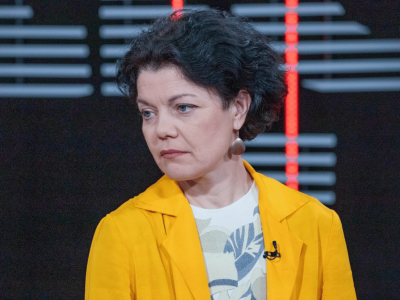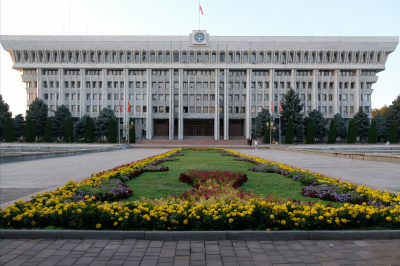
International Partnership for Human Rights (IPHR), the Helsinki Foundation for Human Rights (HFHR) and the Norwegian Helsinki Committee (NHC) are alarmed at the recent arrest of lawyer Samat Matsakov in Kyrgyzstan. The circumstances surrounding his detention suggest he was targeted for defending clients in politically sensitive cases, with serious procedural violations reportedly marring the legal actions against him. We urge the Kyrgyzstani authorities to release Matsakov promptly and drop all charges against him unless they are supported by credible evidence. They should ensure that he and other defence lawyers can carry out their professional duties without fear of intimidation or interference, regardless of their clients’ profiles or the charges against them.
On 29 November 2024, officers from the State Committee for National Security (SCNS) arrested Matsakov after searching his home in Bishkek and confiscating case materials related to his legal defence work. At a hearing that began later the same day and continued into the early morning of 30 November 2024, Pervomaisky District Court sanctioned his pre-trial detention for a month on charges of fraud and forgery of documents (under articles 209 - part 3, and 379 - part 3 of the Criminal Code).
The authorities have offered no clear or credible justification for Matsakov’s arrest. However, available information indicates that the charges against him are related to his professional activities, and his arrest coincides with his work on high-profile cases. He has recently defended journalists in the Temirov Live case, who were prosecuted over their investigations into high-level corruption, and musician-poet Askat Zhetigen, who faced criminal charges after publishing a social media appeal critical of President Sadyr Japarov. In addition, Matsakov represents Imamidin Tashov, head of the KG Group construction company and a previous presidential candidate, who has alleged being tortured by SCNS officers while in detention on charges of plotting a coup.
Against this background, a group of Kyrgyzstani lawyers, human rights defenders and civil society activists issued a joint statement expressing serious concerns that Matsakov’s arrest represents a troubling escalation in the crackdown on those defending human rights, the rule of law, and justice in Kyrgyzstan. They also described it as a direct attack on the independence of the legal profession. We share these concerns.
In a separate statement, the Kyrgyzstani Bar Association (Advokatura) concluded that the apparent link between the law enforcement actions against Matsakov and his professional activities raises significant doubts about the authorities’ adherence to guarantees for the independence of the legal profession under national and international law. Kyrgyzstan’s Law on the Bar Association and the Legal Profession prohibits hindrance or interference in the work of lawyers, while the United Nations Basic Principles on the Role of Lawyers explicitly require that lawyers not be identified with their clients or their clients' causes as a result of fulfilling their professional duties.
Human rights defenders and Matsakov’s lawyer-colleagues have highlighted worrying procedural violations in the case. These include the lack of required procedural documentation for his arrest, the search of his home and work premises without legal sanction, the confiscation of case materials unrelated to the charged against him in breach of attorney-client privilege, delays in granting him access to legal representation, and pressure on him to answer questions following his detention.
The court proceedings that sanctioned Matsakov’s pre-trial detention – attended by a large group of lawyers and human rights defenders – were criticised for bias against the defence. The defence was denied access to key case files, including the complaint filed by the alleged victim of fraud and the document Matsakov is accused of forging, under the pretext of investigative secrecy. His lawyers also emphasised that the allegedly forged document – an agreement with a client – is not an official document of the type whose forgery is punishable under the criminal code provision (article 379 – part 3) under which he has been charged.
In addition, when sanctioning Matsakov’s pre-trial detention, the court failed to take into account mitigating factors, such as Matsakov’s role as the father of three young children and his clean criminal record.
Commenting on the case, UN Special Rapporteur on human rights defenders Mary Lawlor expressed concerns about Matsakov’s detention ‘’in apparent violation of procedural guarantees for the arrest and fair trial standards’’. She stressed that lawyers ‘’should be protected from harassment and persecution’’.
IPHR, HFHR and NHC call on other representatives of the international community to also speak out on Matsakov’s case, urgently raise it with the Kyrgyzstani authorities, and demand that they comply with their international obligations to protect the legal profession and uphold due process and fair trial standards. How the Kyrgyzstani authorities proceed in this case will serve as a litmus test of their commitment to the independence of the legal profession and their respect for the professional integrity of lawyers defending victims of human rights violations.


